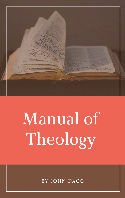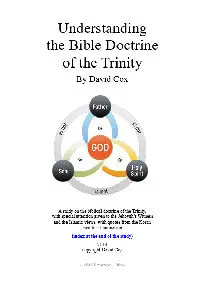| CHAPTER I. |
| THE TRAINING OF SAUL THE RABBI. |
| Acts vii. 58; xxii. 3. |
|
PAGE |
|
St. Paul’s Appearance on the Christian Stage and its Results—The Tübingen Theory—His Parentage—Birthplace—Testimony of St. Epiphanius—Early Friends—Education—Trade—Gamaliel and his Influence—Evidence of Talmud—Pharisaic Schools—Their Casuistry and Exegesis—Parallel between Hagar and Sarah
|
1‑21 |
| CHAPTER II. |
| THE CONVERSION OF THE PERSECUTOR. |
| Acts viii. 3; ix. 1-6. |
|
Saul of Tarsus and St. Stephen—Saul and the Sanhedrin—Conduct of Saul when Unconverted—Continuity of Judaism and Christianity—Saul and Blasphemy of Christ—Sense of Sin compatible with Sense of Forgiveness—Hooker on the Litany—Jeremy Taylor on Humility—Saul’s Mission to Damascus—Domestic Tribunal permitted to the Jews by the Romans—Used against the Men of the Way—Meaning of this expression—Influence of it—Saul’s Journey—Scene of Conversion—Lord Lyttelton’s Observations upon St. Paul’s Conversion—Supernatural Accompaniments appropriate to—Apostle’s own Narrative—Reflections of the Venerable Bede
|
22‑47 |
| CHAPTER III. |
| THE NEW CONVERT AND HIS HUMAN TEACHER. |
| Acts ix. 10, 11. |
| [xii]
Saul and the Vision—Which probably produced Ophthalmia—Portrait of St. Paul—Ananias of Damascus—Straight Street—St. Chrysostom on the Spiritual Greatness of Ananias—Seventeenth-century Travellers in Palestine—Conversation between Jesus Christ and Ananias—Its Theology—Meaning of word Saint—Protest against Antinomianism—St. Paul and title Vas Electionis—And Doctrine of Election—Balance of Doctrine—The New Convert and Prayer
|
48‑67 |
| CHAPTER IV. |
| SAUL AND SINAI. |
| Acts ix. 19, 20. |
|
Visit of Ananias to House of Judas—Christ the True Visitor—Keble’s Hymn for Easter Monday—Restoration of Saul’s Sight—His Baptism—Language of Ananias—Importance of this fact—Saul’s Work in Damascus—Narrative in Acts and in Galatians—Difficulties—Reconciliation—Saul in Arabia—Ancient Explanations of—Discipline of—Value of Seasons of Retirement—Waste of Vital Spiritual Tissues in Activity—Abuse of this Principle in Monasticism—Celtic Monasticism—Saul, the Vas Electionis, trained like Jesus Christ
|
68‑91 |
| CHAPTER V. |
| THE FIRST GENTILE CONVERT. |
| Acts x. 1-6. |
|
The Turning-points of Primitive Church History—Conversion of Saul and of Cornelius—Saul’s earliest Ministry at Jerusalem—His Escape to Tarsus—St. Peter and Church in Joppa—Temporary Peace after Saul’s Conversion—Caligula’s attempt to erect his Statue in Jerusalem—St. Peter and Simon the Tanner—Time of Conversion of Cornelius was Providential—Place, Cæsarea-by-the-Sea, Providential—Cornelius, a Roman Centurion—The Legions and Palestine—Modern Authorities confirm the Acts—New Testament and Favourable Estimate of Soldiers—Catholic Nature of Christianity—Value of Discipline—Lessons Taught by Example of Cornelius
|
92‑114 |
| CHAPTER VI. |
| THE PETRINE VISION AT JOPPA. |
| Acts x. 9-15. |
| [xiii]
St. Peter led to Joppa Unconsciously—His Period of Repose—Joppa and Missions to the Gentile World—Jonah—Peter and the Hour of Prayer—Value of Forms—Canonical Hours—Tertullian’s Testimony—Nature of Peter’s Vision—Conditioned by his Natural State—Exactly suited to Destroy his Prejudices—John Calvin’s View—St. Peter at Cæsarea—His Sermon—Not Latitudinarian, as some Think—But Truly Catholic—Peter presupposes some Knowledge of Gospel Facts—Evidence of Resurrection—Necessarily Limited—Unless Course of Human Affairs was to be Upset—And God’s Usual Laws set Aside—Outpouring of Holy Ghost on Gentiles—Baptism of Cornelius
|
115‑141 |
| CHAPTER VII. |
| THE HARVEST OF THE GENTILES. |
| Acts xi. 26. |
|
Reception of News of Gentile Conversion at Jerusalem—Debate and Strife with St. Peter—The Early Church Knew Nothing of the Privilegium Petri—Fable of Pope Marcellinus—Origin of Antiochene Church—Foundation of Antioch—Scenery and History—Orators and Water Supply—Arrival of Barnabas and of Saul—Invention of the Name Christians—Remarks of Archbishop Trench—The Prophet Agabus and the Outgoings of Charity
|
142‑163 |
| CHAPTER VIII. |
| THE DEFEAT OF PRIDE. |
| Acts xii. 1-3, 23, 24. |
|
Contact of Sacred and Secular History in this Chapter—Story of Herod Agrippa—Illustration of Principle of Heredity—First Martyrdom among Apostles—Character of James, Son of Zebedee—His Spiritual Eminence—His Death a Real Answer to Prayer—St. Peter’s Deliverance—Granted to a Pleading Church—Angelic Interference—And the Proprieties of Christianity—Clement of Alexandria and the Pædagogue—Herod’s Ostentation and Miserable Death—Testimony of Josephus
|
164‑187 |
| CHAPTER IX. |
| ST. PAUL’S ORDINATION AND FIRST MISSIONARY TOUR |
| Acts xiii. 2-4, 14; xiv. 1, 26. |
|
Thirteenth Chapter may be called the Watershed of the Acts—Calvin and St. Paul’s Ordination—Title Apostle Henceforth Applied to Him—Ember Seasons, Reason of—First Formal Mission to the Gentile World—Outline of Apostolic Tour—Saul and Sergius Paulus—Discoveries of General Cesnola—St. Paul’s Sermon at the Pisidian Antioch—Jewish Jealousy and Opposition—Iconium—Lystra and Greek Legends—Discovery of Site of Lystra—Roman Police in Asia Minor—Dialects of Asia Minor—Museum of the Evangelical School at Smyrna—St. Paul and Church Organisation
|
188‑218 |
| [xiv]CHAPTER X. |
| THE FIRST CHRISTIAN COUNCIL. |
| Acts xv. 1, 2, 6, 19. |
|
History of the great General Councils—Originates at that of Jerusalem—Date and Subject-matter—The Controversy about Circumcision—Social Questions springing from it—St. Paul’s Position—His Apparent Inconsistencies—Lessons of Apostolic Council—Early Church Scene of Controversies—No Infallible Guide—Composition of Council—Lay Element in Church Synods—Hooker and the Church of England—Witness of Prayer Book—Experience of Irish Church—Proceedings of the Council—Triumph of Gentile Freedom
|
219‑244 |
| CHAPTER XI. |
| APOSTOLIC QUARRELS AND THE SECOND TOUR. |
| Acts xv. 36, 39; xvi. 6, 8, 9. |
|
Introduction of Christianity to Greece—St. Peter and his Asserted Roman Episcopate of Twenty-five Years—Quarrel between St. Paul and St. Barnabas—Between St. Paul and St. Peter—Patristic Explanations—St. Augustine and St. Jerome—St. Paul’s Opposition to Nepotism—Barnabas and Mark—Blessings of Sternness—The Wrath of Man praises God—Outline of St. Paul’s Second Tour—Ramsay’s Historical Geography of Asia Minor—Timothy’s Ordination—The Gospel among the Celts—Jeremy Taylor and the Via Intelligentiæ—The Vision at Troas
|
245‑270 |
| CHAPTER XII. |
| ST. PAUL IN MACEDONIA. |
| Acts xvi. 29, 31; xvii. 1, 2, 10. |
|
Ancient Roads and Rome—The Gospel at Philippi—History of that Town—Constitution of Roman Colonies—Lydia and Jewish Oratory—Francis de Sales and Small Congregations—Politics and Christianity—The Apostle before the Duumviri—The Jailer and the Earthquake—”Believe on the Lord Jesus Christ, and Thou shalt be Saved”—The Philippian Church and Persecution—St. Paul at Thessalonica and Berœa—The Politarchs
|
271‑300 |
| CHAPTER XIII. |
| ST. PAUL IN GREECE. |
| Acts xvii. 16-18; xviii. 1. |
| [xv]
St. Paul and St. Athanasius, a Parallel—Escape to Athens down the Thermaic Gulf—Visit of Pausanias to that City—Ideal Character of Athenian Paganism—Areopagus and St. Paul—The Unknown God—The Greek Poets—Jesus and the Resurrection—The Primitive Athenian Church and its Theology—Aristides and his Apology—Dionysius the Areopagite and his reputed Philosophy—Origin of Corinthian Church—The Saintly Tentmakers—The Firstfruits of Achaia—Gallio and the Jews—Philosophy and Christ
|
301‑330 |
| CHAPTER XIV. |
| THE EPHESIAN CHURCH AND ITS FOUNDATION. |
| Acts xviii. 19-21, 24-26; xix. 1. |
|
History of Ephesus—Cenchreæ and its Church—Aquila and his Vow—Christianity and External Actions—Judaism and Christianity confounded by Romans—St. Paul’s Journey to Ephesus and Jerusalem—Visit to Galatia—Ephesus and John’s Disciples—Slow Progress of Gospel in Apostolic Age—Apollos and Meyer’s Theory about Baptism—The Baptismal Formula—The School of Tyrannus—Ephesian Magic and its Professors—Story of St. Chrysostom—The Sons of Sceva
|
331‑356 |
| CHAPTER XV. |
| THE EPHESIAN RIOT AND A PRUDENT TOWN CLERK. |
| Acts xix. 23-28. |
|
Duration of St. Paul’s Ministry at Ephesus—Date of 1st Corinthians—Diana of Ephesus and her Persian Worship—Weakness of Argument e silentio—Demetrius and the Craftsmen—Artemisian Festivals and Christian Sufferings—Testimony of Achilles Tatius—Martyrdom of Polycarp—Celtic Conventions—Mr. Wood’s Discoveries at Ephesus—Gaius Vibius Salutarius—Extant Specimen of Ephesian Silverwork—Speech of Demetrius—The Asiarchs and the Recorder—Apostolic Controversy and its Methods
|
357‑384 |
| CHAPTER XVI. |
| ST. PAUL AND THE CHRISTIAN MINISTRY. |
| Acts xx. 1, 7, 17-19, 28. |
| [xvi]
St. Paul’s Position in A.D. 57—Personal Character of St. Luke’s Narrative—Defects of German Criticism—Apostle’s Second Visit to Macedonia—”Round about unto Illyricum”—Visitation of Corinth—Passover at Philippi—Holy Communion at Troas—The Lord’s Day in the Primitive Church—Argument from Silence, Dangers of—Justin Martyr on Sunday—Eucharistic Amen—Evening Celebrations—The Agape—Fasting Communion—St. Paul’s Sermon and Eutychus—Miletus and Charge to Ephesian Elders—Its Apologetic Tone—St. Paul’s view of Sermons—Decay of Modern Preaching—Apostolic Power of Prevision—The Ministry and Personal Religion—The Holy Ghost and Ordination—Origin of Episcopacy—Dr. Hatch’s Theories unhistorical—Irenæus on Bishops—Derived from Apostles—Communicatio Idiomatum—St. Paul’s Farewell
|
385‑421 |
| CHAPTER XVII. |
| A PRISONER IN BONDS. |
| Acts xxi. 2, 3, 17, 33, 39, 40; xxii. 22, 30; xxiv. 1; xxvi. 1. |
|
St. Paul’s Voyage from Miletus to Jerusalem—Christianity at Tyre—”The Seed growing silently”—The Church at Cæsarea and its Teachers—St. Paul’s Interview with St. James—The Nazarite Vow—St. Paul’s Arrest and Appearance before the Sanhedrin—His Defence before Felix—Felix and Drusilla—Lessons of St. Paul’s Vicissitudes—Agabus and Prophesying—St. James and Compromise—St. Paul and the High Priest—His Quickness and Tact—Tertullian on Flight in Persecution—Quietism and Quakerism—St. Paul and the Herodian Family—Argument of his Address before Agrippa and Bernice—His Appeal to Cæsar
|
422‑449 |
| CHAPTER XVIII. |
| “IN PERILS ON THE SEA.” |
| Acts xxvii. 1-3; xxviii. 16. |
|
St. Paul as a Traveller and a Prisoner—Length of his Imprisonment—Blessed Results of his Captivity—”The Prisoner of the Lord”—Teaching of the Seventeenth Sunday after Trinity—His Captivity Benefited—(a) His Personal Religion—(b) The Church at Cæsarea—(c) The Church at Rome—(d) The Universal Church—Composition of St. Luke’s Gospel—Technical Use of word Gospel—Testimony of Aristides and Irenæus—Epistles of the Captivity—Story of the Voyage to Rome—Roman Provincial Organisation—Writings of Mr. James Smith of Jordanhills—Church at Sidon—The Storm—Malta and Puteoli—Christianity at Pompeii—Christian Inscription there Discovered—St. Paul’s Approach to Rome—Intense Humanity of the Apostle—Interview with the local Jewish Sanhedrin—Christianity at Rome—Investigations of Harnack and Schürer
|



 .
. 

Stokes Expositor’s Bible: The Acts of the Apostles, Vol. 2
CONTENTS.
St. Paul’s Appearance on the Christian Stage and its Results—The Tübingen Theory—His Parentage—Birthplace—Testimony of St. Epiphanius—Early Friends—Education—Trade—Gamaliel and his Influence—Evidence of Talmud—Pharisaic Schools—Their Casuistry and Exegesis—Parallel between Hagar and Sarah
Saul of Tarsus and St. Stephen—Saul and the Sanhedrin—Conduct of Saul when Unconverted—Continuity of Judaism and Christianity—Saul and Blasphemy of Christ—Sense of Sin compatible with Sense of Forgiveness—Hooker on the Litany—Jeremy Taylor on Humility—Saul’s Mission to Damascus—Domestic Tribunal permitted to the Jews by the Romans—Used against the Men of the Way—Meaning of this expression—Influence of it—Saul’s Journey—Scene of Conversion—Lord Lyttelton’s Observations upon St. Paul’s Conversion—Supernatural Accompaniments appropriate to—Apostle’s own Narrative—Reflections of the Venerable Bede
Saul and the Vision—Which probably produced Ophthalmia—Portrait of St. Paul—Ananias of Damascus—Straight Street—St. Chrysostom on the Spiritual Greatness of Ananias—Seventeenth-century Travellers in Palestine—Conversation between Jesus Christ and Ananias—Its Theology—Meaning of word Saint—Protest against Antinomianism—St. Paul and title Vas Electionis—And Doctrine of Election—Balance of Doctrine—The New Convert and Prayer
Visit of Ananias to House of Judas—Christ the True Visitor—Keble’s Hymn for Easter Monday—Restoration of Saul’s Sight—His Baptism—Language of Ananias—Importance of this fact—Saul’s Work in Damascus—Narrative in Acts and in Galatians—Difficulties—Reconciliation—Saul in Arabia—Ancient Explanations of—Discipline of—Value of Seasons of Retirement—Waste of Vital Spiritual Tissues in Activity—Abuse of this Principle in Monasticism—Celtic Monasticism—Saul, the Vas Electionis, trained like Jesus Christ
The Turning-points of Primitive Church History—Conversion of Saul and of Cornelius—Saul’s earliest Ministry at Jerusalem—His Escape to Tarsus—St. Peter and Church in Joppa—Temporary Peace after Saul’s Conversion—Caligula’s attempt to erect his Statue in Jerusalem—St. Peter and Simon the Tanner—Time of Conversion of Cornelius was Providential—Place, Cæsarea-by-the-Sea, Providential—Cornelius, a Roman Centurion—The Legions and Palestine—Modern Authorities confirm the Acts—New Testament and Favourable Estimate of Soldiers—Catholic Nature of Christianity—Value of Discipline—Lessons Taught by Example of Cornelius
St. Peter led to Joppa Unconsciously—His Period of Repose—Joppa and Missions to the Gentile World—Jonah—Peter and the Hour of Prayer—Value of Forms—Canonical Hours—Tertullian’s Testimony—Nature of Peter’s Vision—Conditioned by his Natural State—Exactly suited to Destroy his Prejudices—John Calvin’s View—St. Peter at Cæsarea—His Sermon—Not Latitudinarian, as some Think—But Truly Catholic—Peter presupposes some Knowledge of Gospel Facts—Evidence of Resurrection—Necessarily Limited—Unless Course of Human Affairs was to be Upset—And God’s Usual Laws set Aside—Outpouring of Holy Ghost on Gentiles—Baptism of Cornelius
Reception of News of Gentile Conversion at Jerusalem—Debate and Strife with St. Peter—The Early Church Knew Nothing of the Privilegium Petri—Fable of Pope Marcellinus—Origin of Antiochene Church—Foundation of Antioch—Scenery and History—Orators and Water Supply—Arrival of Barnabas and of Saul—Invention of the Name Christians—Remarks of Archbishop Trench—The Prophet Agabus and the Outgoings of Charity
Contact of Sacred and Secular History in this Chapter—Story of Herod Agrippa—Illustration of Principle of Heredity—First Martyrdom among Apostles—Character of James, Son of Zebedee—His Spiritual Eminence—His Death a Real Answer to Prayer—St. Peter’s Deliverance—Granted to a Pleading Church—Angelic Interference—And the Proprieties of Christianity—Clement of Alexandria and the Pædagogue—Herod’s Ostentation and Miserable Death—Testimony of Josephus
Thirteenth Chapter may be called the Watershed of the Acts—Calvin and St. Paul’s Ordination—Title Apostle Henceforth Applied to Him—Ember Seasons, Reason of—First Formal Mission to the Gentile World—Outline of Apostolic Tour—Saul and Sergius Paulus—Discoveries of General Cesnola—St. Paul’s Sermon at the Pisidian Antioch—Jewish Jealousy and Opposition—Iconium—Lystra and Greek Legends—Discovery of Site of Lystra—Roman Police in Asia Minor—Dialects of Asia Minor—Museum of the Evangelical School at Smyrna—St. Paul and Church Organisation
History of the great General Councils—Originates at that of Jerusalem—Date and Subject-matter—The Controversy about Circumcision—Social Questions springing from it—St. Paul’s Position—His Apparent Inconsistencies—Lessons of Apostolic Council—Early Church Scene of Controversies—No Infallible Guide—Composition of Council—Lay Element in Church Synods—Hooker and the Church of England—Witness of Prayer Book—Experience of Irish Church—Proceedings of the Council—Triumph of Gentile Freedom
Introduction of Christianity to Greece—St. Peter and his Asserted Roman Episcopate of Twenty-five Years—Quarrel between St. Paul and St. Barnabas—Between St. Paul and St. Peter—Patristic Explanations—St. Augustine and St. Jerome—St. Paul’s Opposition to Nepotism—Barnabas and Mark—Blessings of Sternness—The Wrath of Man praises God—Outline of St. Paul’s Second Tour—Ramsay’s Historical Geography of Asia Minor—Timothy’s Ordination—The Gospel among the Celts—Jeremy Taylor and the Via Intelligentiæ—The Vision at Troas
Ancient Roads and Rome—The Gospel at Philippi—History of that Town—Constitution of Roman Colonies—Lydia and Jewish Oratory—Francis de Sales and Small Congregations—Politics and Christianity—The Apostle before the Duumviri—The Jailer and the Earthquake—”Believe on the Lord Jesus Christ, and Thou shalt be Saved”—The Philippian Church and Persecution—St. Paul at Thessalonica and Berœa—The Politarchs
St. Paul and St. Athanasius, a Parallel—Escape to Athens down the Thermaic Gulf—Visit of Pausanias to that City—Ideal Character of Athenian Paganism—Areopagus and St. Paul—The Unknown God—The Greek Poets—Jesus and the Resurrection—The Primitive Athenian Church and its Theology—Aristides and his Apology—Dionysius the Areopagite and his reputed Philosophy—Origin of Corinthian Church—The Saintly Tentmakers—The Firstfruits of Achaia—Gallio and the Jews—Philosophy and Christ
History of Ephesus—Cenchreæ and its Church—Aquila and his Vow—Christianity and External Actions—Judaism and Christianity confounded by Romans—St. Paul’s Journey to Ephesus and Jerusalem—Visit to Galatia—Ephesus and John’s Disciples—Slow Progress of Gospel in Apostolic Age—Apollos and Meyer’s Theory about Baptism—The Baptismal Formula—The School of Tyrannus—Ephesian Magic and its Professors—Story of St. Chrysostom—The Sons of Sceva
Duration of St. Paul’s Ministry at Ephesus—Date of 1st Corinthians—Diana of Ephesus and her Persian Worship—Weakness of Argument e silentio—Demetrius and the Craftsmen—Artemisian Festivals and Christian Sufferings—Testimony of Achilles Tatius—Martyrdom of Polycarp—Celtic Conventions—Mr. Wood’s Discoveries at Ephesus—Gaius Vibius Salutarius—Extant Specimen of Ephesian Silverwork—Speech of Demetrius—The Asiarchs and the Recorder—Apostolic Controversy and its Methods
St. Paul’s Position in A.D. 57—Personal Character of St. Luke’s Narrative—Defects of German Criticism—Apostle’s Second Visit to Macedonia—”Round about unto Illyricum”—Visitation of Corinth—Passover at Philippi—Holy Communion at Troas—The Lord’s Day in the Primitive Church—Argument from Silence, Dangers of—Justin Martyr on Sunday—Eucharistic Amen—Evening Celebrations—The Agape—Fasting Communion—St. Paul’s Sermon and Eutychus—Miletus and Charge to Ephesian Elders—Its Apologetic Tone—St. Paul’s view of Sermons—Decay of Modern Preaching—Apostolic Power of Prevision—The Ministry and Personal Religion—The Holy Ghost and Ordination—Origin of Episcopacy—Dr. Hatch’s Theories unhistorical—Irenæus on Bishops—Derived from Apostles—Communicatio Idiomatum—St. Paul’s Farewell
St. Paul’s Voyage from Miletus to Jerusalem—Christianity at Tyre—”The Seed growing silently”—The Church at Cæsarea and its Teachers—St. Paul’s Interview with St. James—The Nazarite Vow—St. Paul’s Arrest and Appearance before the Sanhedrin—His Defence before Felix—Felix and Drusilla—Lessons of St. Paul’s Vicissitudes—Agabus and Prophesying—St. James and Compromise—St. Paul and the High Priest—His Quickness and Tact—Tertullian on Flight in Persecution—Quietism and Quakerism—St. Paul and the Herodian Family—Argument of his Address before Agrippa and Bernice—His Appeal to Cæsar
St. Paul as a Traveller and a Prisoner—Length of his Imprisonment—Blessed Results of his Captivity—”The Prisoner of the Lord”—Teaching of the Seventeenth Sunday after Trinity—His Captivity Benefited—(a) His Personal Religion—(b) The Church at Cæsarea—(c) The Church at Rome—(d) The Universal Church—Composition of St. Luke’s Gospel—Technical Use of word Gospel—Testimony of Aristides and Irenæus—Epistles of the Captivity—Story of the Voyage to Rome—Roman Provincial Organisation—Writings of Mr. James Smith of Jordanhills—Church at Sidon—The Storm—Malta and Puteoli—Christianity at Pompeii—Christian Inscription there Discovered—St. Paul’s Approach to Rome—Intense Humanity of the Apostle—Interview with the local Jewish Sanhedrin—Christianity at Rome—Investigations of Harnack and Schürer
Works from this Category
Expositors-Bible-The-Acts-of-the-Apostles-Vol.-2.mobi
220 Downloads
Details
Expositors-Bible-The-Acts-of-the-Apostles-Vol.-2.epub
267 Downloads
Details